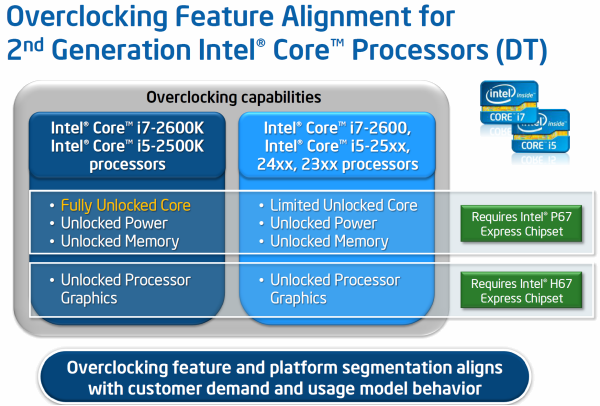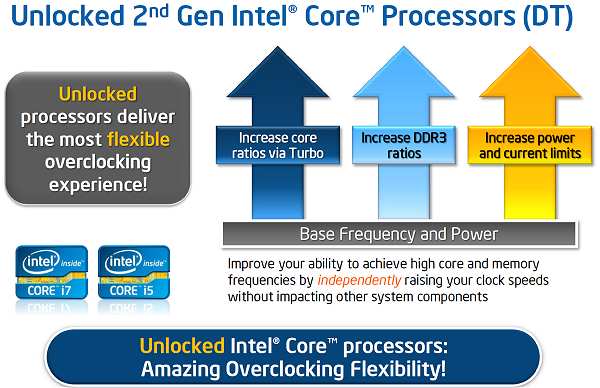Unlocked Overclocking
In what I interpreted to be a strategic move to destroy me and the little holiday time that I had, Intel decided to move forward the Sandy Bridge launch day from the 8th to the 4th and they did so with very little notice.
As a result I did not get to spend as much time as I would have liked playing around with the overclocking side of things, but we do have some results for you.


Intel supplied us with two processors for testing, the Core i5 2500K and Core i7 2600K, both of which are special unlocked editions. Like the Intel Extreme Edition or AMD Black Edition processors, Sandy Bridge members of the K-series (the letter at the end of the model number) also offer unlocked overclocking support.
The Sandy Bridge architecture doesn't allow for base clock overclocking or at least it is extremely limited. All Sandy Bridge processors use a 100MHz base clock whereas Nehalem-based processors utilized a 133MHz base clock and in the past we have managed to push this quite high.
I must stress again that we had very limited time to play around with the base clock of the Core i5 2500K and Core i7 2600K CPUs, but in the time that we had we failed to overclock them using this method.

Now, given that these are K-series processors, we were able to increase the clock multiplier to boost the operating frequency. Doing so allowed us to reach a stable 4.40GHz overclock which required a slight voltage increase. So far we haven't had time to try and better this overclock, but we are confident that it is possible to squeeze quite a bit more out of these processors.
Since we were not sent a standard locked Sandy Bridge processor, we are unsure about any overclocking potential in these. We believe the Turbo Boost multipliers will be available, meaning that users with the Core i7 2600 processor for example could force all cores to run at a constant 3.80GHz, though this is just a 12% overclock and not the 33% overclock that we were able to achieve with the K variant.